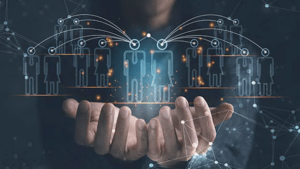In a transformative development for human resources (HR), generative artificial intelligence (AI) is redefining the field by boosting efficiency and allowing for a more personalized approach to managing workforce dynamics. According to a recent study by Bain & Company, the integration of generative AI in HR processes can lead to an average labor time savings of 15-20%, thanks to automation and augmentation.
Bain’s research, backed by their Generative AI Workforce Impact Explorer tool, highlights significant potential for time savings across various HR roles. Notably, talent acquisition teams can cut process times by up to 20%, and HR operations can achieve savings of up to 35%. These efficiencies are paving the way for HR to transition from a transactional function to a strategic advisory role within organizations.
John Hazan, Bain & Company’s global head of Talent solutions, emphasizes the dual pressure HR faces to be both cost-effective and strategically impactful. He notes that generative AI empowers HR professionals to focus on designing workplace culture and advising business leaders, thus transforming HR into a more influential role.
The report suggests that as generative AI automates routine tasks, HR teams can reorganize and redefine skill sets. This shift positions HR specialists as innovation drivers, HR business partners as culture champions, and HR operations teams as data analysts who generate actionable insights.

In the Middle East, this evolution is seen as a significant opportunity. Serge Eid, a partner in Bain & Company’s Public Sector & Government and Strategy practice, points out that embracing generative AI allows HR professionals in the region to focus on skills development, employee engagement, and cultural transformation.
The integration of AI is also enhancing performance reviews, automating quality checks, and improving data processing accuracy, which frees up HR professionals to deliver strategic value. However, Bain’s findings also caution about the challenges of ethical AI use and the risk of over-reliance on technology.
Ultimately, the thoughtful implementation of generative AI in HR is expected to create a balance between efficiency and personalization. By offloading repetitive tasks to AI, HR teams can concentrate on what truly matters—engaging with employees, shaping organizational culture, and driving growth, both in the Middle East and globally.



